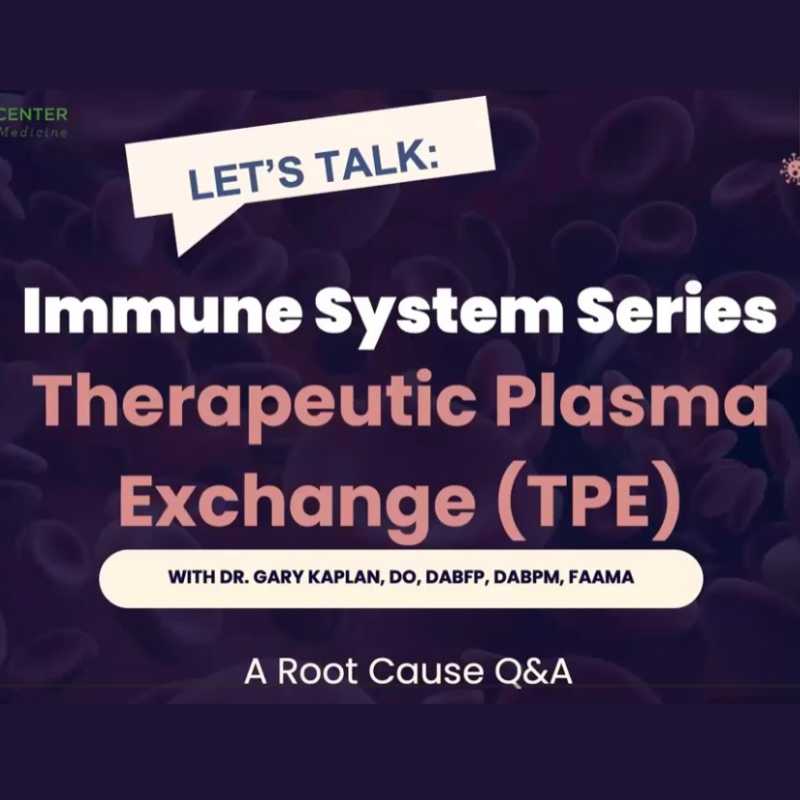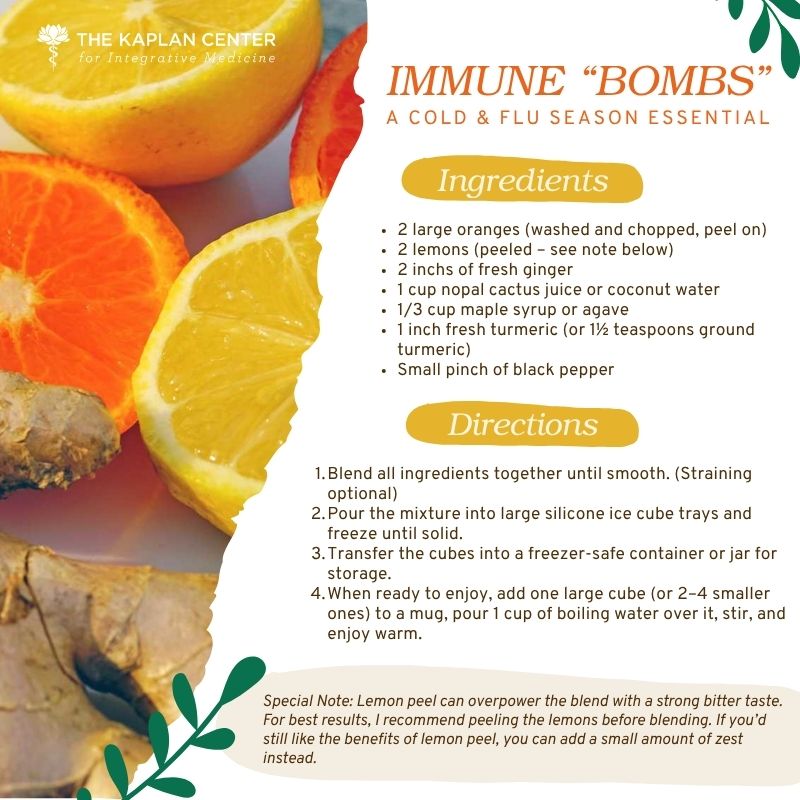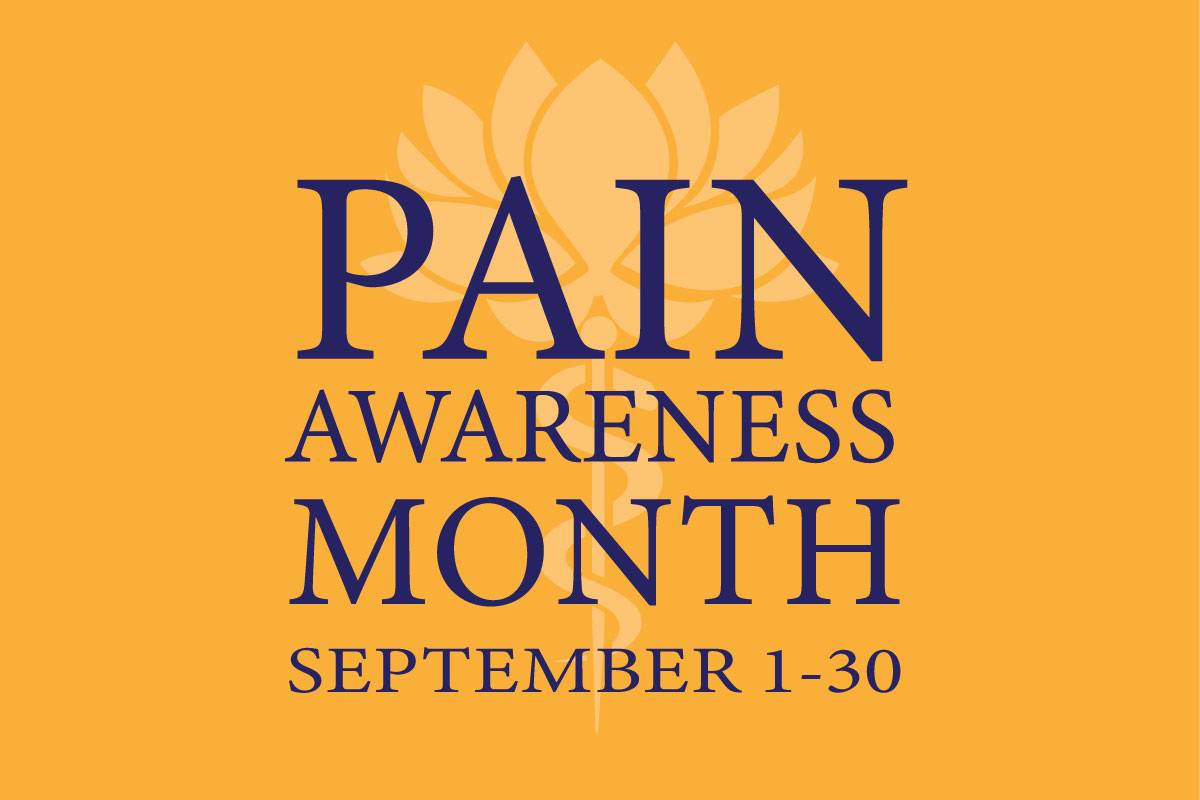
5 Ways We Can Keep Your Immune System Strong
December 10, 2025/by Kaplan Center
Want to Take Your Workout to the Next Level Next Year? These Tips Can Help
December 8, 2025/by Kaplan Center
Dr. Kaplan’s Dos and Don’ts of the Holiday Season
December 3, 2025/by Kaplan Center
Let’s Talk Webinar – A Root Cause Q&A
December 2, 2025/by Kaplan Center
Navigating Holiday Meals with Gut Issues: Simple Tips for a Comfortable Season
December 1, 2025/by Chardonée Donald, MS, CBHS, CHN, CNS, LDN
Craniosacral Therapy for TMJ | Say Goodbye to the Daily Grind
November 19, 2025/by Patricia Alomar, M.S., P.T.
From Compassionate Care to Personal Healing: A Letter to My Patients
November 18, 2025/by Kaplan Center
8 Steps to a Healthier Gut—and a Longer, Healthier Life
November 18, 2025/by Kaplan Center
Mid-Life Irritability & Fatigue Improved by Hormonal Balancing
November 13, 2025/by Lisa Lilienfield, MD
From Challenges to Change: Dr. Kaplan on Healthcare’s Biggest Challenges
October 29, 2025/by Kaplan Center
Overlooked Dangers of Mold Exposure and How to Stay Safe – Dr. Kaplan Talks to WUSA9
October 27, 2025/by Kaplan Center
Let’s ‘Fall’ Into Wellness: A Nutritionist-Approved Immune-Boosting Recipe for Cold and Flu Season
October 13, 2025/by Chardonée Donald, MS, CBHS, CHN, CNS, LDN
PANS/PANDAS – When Sudden Symptoms Signal Something More
October 9, 2025/by Kaplan Center
Beating Burnout, A Nutritionist’s Perspective
October 1, 2025/by Chardonée Donald, MS, CBHS, CHN, CNS, LDN
3 Things That Can Happen After Stopping GLP-1s
September 11, 2025/by Chardonée Donald, MS, CBHS, CHN, CNS, LDN
What Families Need to Know About COVID and Flu Season
September 3, 2025/by Kaplan Center
September is Pain Awareness Month
September 1, 2025/by Kaplan Center
Dr. Kaplan Spoke to Northern Virginia Magazine About COVID, Flu, and Immunity — Here’s What You Should Know
August 14, 2025/by Kaplan Center
“Why Do I Feel Like Crap?”: The Overlap Between Long COVID and Perimenopause
July 30, 2025/by Kaplan Center
Why People Are Turning to EMDR (and Why You Might Want to Too)
July 23, 2025/by Kaplan CenterAre you looking to improve your overall wellness?
Personalized care you can trust.
Our integrative, non-surgical treatment approach is highly successful in maintaining wellness and also treating chronic pain and illness. For more than 30 years, we have delivered superior, cutting-edge health care in the Washington, DC area.
QuickLinks
Contact Information
Tel: 703-532-4892
Fax: 703-237-3105
6829 Elm Street, Suite 300
McLean, Virginia 22101
Map It
Hours of Operation
Mon – Thu : 8 am – 5 pm, ET
Fri : 8 am – 12 pm, ET
Meet our nutritionist, Chardonée Donald, CHN, CNS, LDN
/in News, Nutrition/by Kaplan CenterDear Kaplan Center Community,
I am very excited to introduce Chardonée Donald, CHN, CNS, LDN, as the newest member of our Kaplan Center team!
Chardonée is a Licensed Dietitian Nutritionist and Certified Nutrition Specialist®, credentialed by the American Nutrition Association® through its Board for Certification of Nutrition Specialists™.
In her own words, “I am passionate and duty bound to helping others achieve a healthier lifestyle through research, development, supplements, herbal remedies, education, and motivation.”
Chardonée’s approach to care is rooted in the firm belief that mind, body, spirit and emotions must all be considered in order to take those first steps towards wellness. Her own path to becoming a nutritionist began as a patient wanting to be heard, needing to be acknowledged, and searching for a proper diagnosis. Her experience gives her the opportunity to relate to our patients and provide exceptional care for them.
Please join me in warmly welcoming Chardonée to the Kaplan Center; she is a wonderful addition to our team! I also invite you to take a moment to view her full bio and read her letter to patients below.
With best wishes for your optimal health,
Dr. Gary Kaplan
Letter to Patients
Dear Patients,
Welcome! My name is Chardonée Donald, I am your friendly Board-Certified Nutrition Specialist, Licensed-Dietitian Nutritionist, and Certified Holistic Nutritionist. I am thrilled to be partnering and walking with you to better health! Here at the Kaplan Center for Integrative Medicine, I will be working with an incredible team to help understand who you are as an individual and medically through nutritional analysis.
My background in nutrition began by earning my bachelor’s degree in biomedical science and a minor in nutrition. I went on to obtain my certificate as a Certified Holistic Nutritionist to then to earning my Master of Science in human clinical nutrition. I became a nutrition intern and obtained my certification as a Board-Certified Nutrition Specialist™ (BCNS) from the American Nutrition Association®. I am also licensed in Maryland as a Licensed-Dietitian Nutritionist. Today, I am a 3rd year Ph.D. Candidate in the Functional and Integrative Nutrition program. I am also one of the doctorate level teaching assistants for the same program.
My approach to nutrition is a little different. I look at people with a “whole-body approach” through a combination of motivational interviewing, nutritional analysis, nutrition therapy, education, and lifestyle changes. This means I look at your life from birth to present age, your environment, and dive into questions some may have never asked you. Looking at your overall lifestyle, science, and what makes you, you. This is a “all hands-on deck” approach to your care. That means you, too, are a major part of the team and matter.
I believe that everyone has a purpose, a right to feel heard, a right to trust their healing team, and a right to truly heal. I am dedicated to educating you on your specific needs for your body to heal. My goal and hope is for you to become a “mini nutrition expert” and advocate for yourself.
When I am not investing in my patients, I am intentionally investing at home. I am a daughter, granddaughter, sister, aunt, newlywed Sickle Cell Warrior wife, “Bonus” mom, and a dog mom to beautiful mini-bernedoodle, Harmony.
I am so excited to be partnering with and supporting you on your healing journey!
With Gratitude and Health,
Chardonée Donald MS, CHN, CNS, LDN
We are here for you, and we want to help.
Our goal is to return you to optimal health as soon as possible. To schedule an appointment please call: 703-532-4892 x2
Dr. Kaplan to Co-chair Chronic Illness Symposium
/in News/by Kaplan CenterDr. Gary, Kaplan and Craig Shimasaki are co-chairing the upcoming 3-day symposium, New Developments in Understanding Chronic Illnesses Conference: The Role of Immune Dysfunction and Infections
Date & Location
Wednesday, November 8, 2023, 10:00 AM – Friday, November 10, 2023, 3:00 PM
Marriott Marquis, Washington, DC
Overview
There are over 20 million Americans suffering from a group of chronic disabling disorders analogous to the confused interplay of language described in the biblical Tower of Babel, who are diagnosed without a clear elucidation of pathophysiologic mechanisms. Fibromyalgia, Myalgic Encephalomyelitis/ Chronic Fatigue Syndrome (ME/CFS), Neuropsychiatric illnesses, Post-treatment Lyme Syndrome, Pediatric Acute on Neuropsychiatric Syndrome (PANDAS/PANS).
Adding to this massive disease burden the CDC now estimates that of the 40% of Americans who were infected with COVID-19 1 in 5 continue to suffer with what is now referred to as Post-acute sequalae of COVID (PACAL). Research has demonstrated that common to all of these conditions is dysregulation of the immune system resulting from an infectious insult. Dramatic advances have occurred in our understanding of all of these conditions as a result of COVID. We are entering an incredibly exciting period in medicine where our current Tower of Babel of diseases is beginning to coalesce around an understanding of shared pathophysiology. We are entering a period of true hope for those millions who are suffering where we will finally be able to provide comprehensive solutions for their illness.
This conference will bring together some of the leading researches and clinicians from around the world to discuss the advances in our understanding of these conditions and breakthroughs in diagnostic and treatment options.
Target Audience
Specialties – Allergy/Immunology, Family Medicine, Infectious Disease, Internal Medicine, Neurology, Pain Medicine, Pediatrics, Psychiatry, Psychology , Rheumatology
Professions – Dietetic Technician Registered, Non-Physician, Nurse, Nurse Practitioner, Nutritionist, Physician
Registration is now open. For more information or to register, visit: www.chronicillnessconference.com
Lyme Disease – Four Reasons It May Go Undetected
/in Conditions/by Gary Kaplan, DOIf left undiagnosed and untreated, Lyme disease and other tickborne illnesses can have detrimental long-term effects on the body.
Lyme disease is the most reported vector-borne illness (diseases transmitted through mosquitoes, tick, and flea bites) in the United States. The latest numbers from the CDC estimate that approximately 476,000 patients are diagnosed and treated for Lyme each year.* People who are diagnosed early and receive proper treatment consisting of 28-30 day antibiotic therapy usually recover rapidly and completely. However, others who are correctly diagnosed and treated sometimes fail to fully recover, and, for a variety of reasons, still others go undiagnosed and untreated.
This article explores 4 reasons why Lyme disease may go undetected and/or become a chronic illness.
1) It is not always possible to confirm a tick bite
A key component of early diagnosis is recognition of the characteristic “bulls-eye” rash. Courtesy of the CDC/PHIL.
The only way you can contract Lyme disease is through the bite of an infected tick. If you develop the telltale bull’s eye rash (medically referred to as erythema migrans), there is no disputing the fact that you have Lyme disease, but not all patients have a rash and sometimes the rash does not have a bull’s eye appearance.
Ticks vary from the size of a poppy seed to a sesame seed, which makes them hard to see; and they prefer latching onto hard-to-see areas of the body such as armpits, groin, or scalp, so it’s likely you won’t notice their presence. This means, more often than not, you won’t know if you’ve been bitten, and by the time you start feeling sick – the incubation period for Lyme ranges from a few days to a few weeks – the tick will be long gone.
2) Lyme disease symptoms are very similar to other non-tickborne chronic illnesses.
Another factor that can make it difficult to obtain an accurate diagnosis is the similarity of symptoms that present with Lyme and other tickborne diseases (fever, chills, fatigue, headache, and joint aches) with those of many other non-tickborne illnesses, such as flu and other viral or bacterial infections.
If left undiagnosed and untreated, there can be detrimental effects on the body’s musculoskeletal and nervous systems. Symptoms such as chronic joint pain & headaches, extreme fatigue, and mood disorders can subsequently be misdiagnosed as fibromyalgia, chronic fatigue syndrome, or depression. This similarity of symptoms can cause delays in getting tested, and in turn causing delays in treatment.
There is also evidence indicating that chronic cases of Lyme disease (when symptoms persist after taking the typical short-term dose of antibiotics – also called Post Treatment Lyme Disease) contribute to a sustained inflammatory condition throughout the body that interferes with the healthy functioning of the nervous system. Known as Central Sensitization Syndrome, CSS has been implicated in several chronic illnesses and pain conditions, including fibromyalgia, chronic fatigue syndrome, depression, and Lyme disease.
Questions? Give Us a Call!
703-532-4892 x2
3) The patient may also be co-infected with another tickborne disease.
Ticks can carry multiple bacteria and parasites, including Babesiosis, Ehrlichiosis, Anaplasmosis, Bartonella, and Rocky Mountain Spotted Fever (also called Spotted Fever Rickettsiosis), and it’s not uncommon to see patients with multiple tickborne infections, but you won’t find them if you don’t look. In fact, some studies suggest that as much as 30 percent of ticks that carry Lyme also carry another infectious agent that produces similar symptoms to those of Lyme disease, but requires completely different antibiotics and lengths of treatment. Because of this, it is extremely important for physicians to test for all forms of tickborne diseases and not just for Lyme.
4) Laboratory tests, while important, have room for improvement
Unless you’re among the small percentage of people who present the classic bulls-eye rash, a confirmed diagnosis is a little trickier. Blood tests, can get you another step closer to a diagnosis – and more importantly – a treatment. But before deciding to run diagnostic testing, a doctor must consider a patient’s physical symptoms and obtain a comprehensive history that assesses their personal exposure risk. For example, if an individual is experiencing some suspicious symptoms and often hikes or horseback rides, and/or owns a pet that spends time outdoors, a Lyme test is in order.
Unfortunately, the tests aren’t perfectly reliable, especially if the order includes testing for Lyme and other tickborne diseases. Different labs have varying levels of sensitivity, and some testing can miss some cases of infection. To accurately interpret test results your physician needs to understand the sensitivity and specificity – or, in other words, the limitations — of the lab testing they are ordering.
So what’s the takeaway?
Be your own healthcare advocate. The best medicine is prevention. Before recreating outdoors, cover your body in light-colored clothing. Use an insect repellant on yourself and make sure to treat your pet. Take the time to check yourself and your pet for ticks after spending time outdoors. If you do find a tick, do not throw it away. It can be sent to a lab, such as tickreport.com, and tested for multiple tickborne diseases. Having this information will allow you to request the proper treatment faster.
If you do notice Lyme-like symptoms, a helpful first step is the Horowitz Lyme Questionnaire. Developed by Lyme expert, Dr. Richard Horowitz, this test should not replace medical advice from your physician but can be a useful tool to determine the likelihood of Lyme or other tickborne illnesses. The only way to confirm or rule out a Lyme diagnosis is with a blood test.
Every individual is unique in their genetic makeup, medical history, and environmental exposures. Each of these factors can affect how Lyme disease manifests itself in your body. If some of your symptoms persist, even after you have been treated — don’t give up! Be your own advocate; keep asking questions and seeking answers until you find the right treatment options for you.
Looking for natural ways to protect yourself?
This Washington Post article outlines several non-toxic, protective measures against tick and mosquito bites that are also less harmful to the environment: Nontoxic methods to protect yourself against mosquitos and ticks.
—
*This number includes both actual infections and patients that are treated presumptively but may not actually be infected.
We are here for you, and we want to help.
Our goal is to return you to optimal health as soon as possible. To schedule an appointment please call: 703-532-4892 x2
This article was originally published in July 2017. It was reviewed and updated on May 2023.